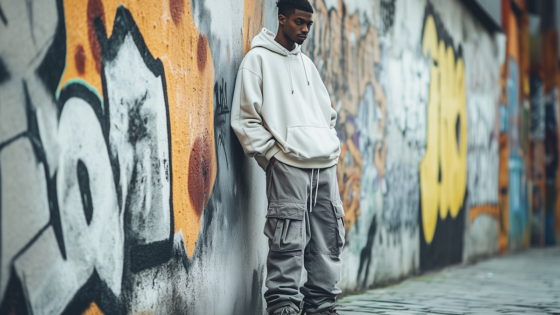on
BY JANIECE CAMPBELL
Coi Leray and Benzino’s months-long feud continues
Rapper Coi Leray and her father, Benzino, have quite a public father-daughter relationship. However, it’s not very loving.
The latest of their messy social media saga began a couple of weeks ago during promotion for Coi’s debut album, Trendsetter. In an interview on “The Breakfast Club,” she claimed that Benzino, the former co-owner of The Source, became broke after he was ousted from the hip-hop magazine. As a result, she and her family struggled financially.
The touching story turned awry once the interview aired, and Benzino was evidently not happy with his daughter for exposing him. Along with a slew of angry tweets, Coi claims that he also began threatening her and her mother.
After facing criticism, including from her own father, about her underwhelming first week of album sales, rapper 50 Cent stepped in to give Coi Leray props and announced that he wants to put her on one of his TV shows. Coi Leray responded positively to his support, which triggered Benzino to lash out at 50.
“You crossed a line with my kid but that’s ok, she’ll have to live with the decision she made to go against her father to deal with the opps. Everyone who is a real person will recognize her disloyalty and it will be her downfall. Smh, people who sell their souls always regret it,” Benzino posted.
Benzino has since challenged 50 Cent to a celebrity boxing match, in which he provokes him to step into the ring and settle things like men. 50 has yet to accept the challenge.
Elon Musk puts up a $40 Billion proposition
The world’s richest man, Elon Musk, is looking to close in on his latest business deal. The Tesla boss has offered $43B to buy Twitter, stating that he’s the right person to unlock the social media platform’s “extraordinary potential.”
Earlier this month, Twitter had offered Musk a seat on its board after it was reported that he held a 9.2% stake in the company, making him the second largest shareholder. The role was set to become effective a couple weeks ago, however, Musk decided against taking it.
Twitter’s chief executive, Parag Agrawal, commented on the matter, noting that the decision by Musk to not take a seat on the board was “for the best”.
Elon Musk has given hints to things that he would change about the app under his leadership. He suggested changes to the Twitter Blue premium subscription service, which was launched last year in Canada and Australia, including slashing the price, banning advertising and giving users the option of paying the monthly fee with the cryptocurrency, dogecoin.
He has stated that if the deal is not approved, he will have to sell his shares. As meetings took place over the weekend, an announcement should arrive in the coming days.
The Kardashians and Blac Chyna face off in court
Media personality Blac Chyna is suing the Kardashian-Jenner family for $100 million.
The lawsuit comes from accusations that the wealthy family essentially “killed” Blac Chyna’s short-lived reality show Rob & Chyna with then-boyfriend, Rob Kardashian. “When they got my #1 hit show killed back in January 2017, that not only hurt me financially and emotionally, that hurt my beautiful kids,” she stated.
Chyna is suing the family for $40 million in lost earnings, and $60 million in loss of future earnings. She has claimed the family used its powerful status in the industry to tarnish her reputation and to get the show canceled before it got a second season. The family has denied these claims.
Kris Jenner testified, getting emotional on the witness stand as she recalled learning that Chyna had allegedly pointed a gun at her son Rob Kardashian’s head, less than two months after her daughter Kim was robbed at gunpoint in Paris. The matriarch also noted that Chyna attacked Rob by strangling him with a cell phone charging cable and hitting him with a metal rod.
Chyna has denied these allegations, saying that while she did hold the cord around his neck “jokingly,” she was not trying to “strangle him.” She also downplayed the gun violence, stating that while she did have a gun, it was unloaded, and she did not point it directly at Rob’s head.
This incident caused a lot of concern among the Kardashian-Jenner clan regarding the former couple and led them to call for Rob & Chyna to not be renewed for a second season, though they deny pressuring E! to do so, saying that the decision to pick up a new season lies with the network alone.
The case is still ongoing.
What’s on TV? Upcoming shows that should be added to your list!
Feeling like you’ve watched everything on TV? Well, there are quite a few shows and movies coming soon to your big screen that you should tap into!
- The Mystery of Marilyn Monroe: The Unheard Tapes (premieres April 27) explores the mystery and controversy surrounding the premature death of Hollywood icon Marilyn Monroe through previously unheard interviews with her inner circle.
- Diary of a Mad Black Woman (premieres May 1) is a 2005 romantic dramedy written by Tyler Perry. A household favourite for many, the film follows an affluent couple’s seemingly solid marriage as it begins to crumble once the wife discovers that her husband intends to divorce her for another woman.
- The Circle (premieres May 4) is coming back to Netflix with a fourth season. In this strategic social media competition series, the players must choose whether to be themselves or other people, all while chasing a cash prize.
- Our Father (premieres May 10) is a documentary that follows the scarily true and chilling story of Dr. Donald Cline, a fertility doctor that used his own sperm in donations, resulting in him fathering over 50 of his patients’ children throughout the 1970’s and 80’s.
Stay in the loop with exclusive news, stories, and insights—delivered straight to your inbox. No fluff, just real content that matters. Sign up today!













